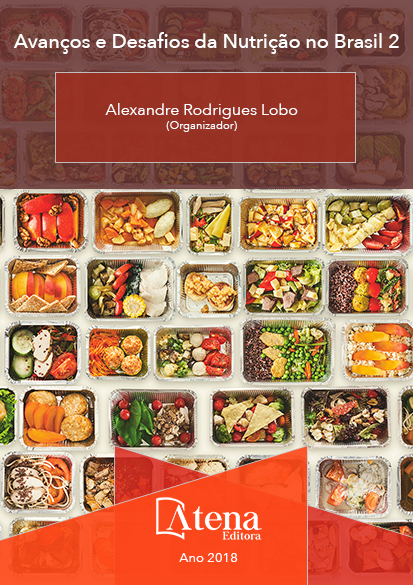
FATORES QUE CONDICIONAM O CONSUMO E A QUALIDADE DO DESJEJUM E SUA ASSOCIAÇÃO COM O ÍNDICE DE MASSA CORPORAL DE ESTUDANTES DE UMA UNIVERSIDADE PÚBLICA DE SALVADOR-BA
O desjejum é considerado uma das
principais refeições, porque oferta ao organismo
fonte exógena de nutrientes após o jejum
noturno. Sua realização pode estar relacionada,
entre outros fatores, à dieta saudável e ao
Índice de Massa Corporal adequado. O objetivo
deste trabalho foi identificar os fatores que
estão associados a realização e a qualidade
do desjejum e analisar a relação com o Índice
de Massa Corporal.Trata-se de um estudo
transversal, com pesquisa de campo, realizado
em uma Universidade Pública de Salvador-BA.
Utilizou-se um questionário semiestruturado e
auto administrado e o recordatório alimentar
de 24 horas. Os fatores investigados foram:
disponibilidade de alimento, disponibilidade
de tempo, costume familiar e outros (entorno
de convivência e apetite). O desjejum foi
categorizado qualitativamente em quatro tipos:
boa qualidade, qualidade satisfatória, qualidade
insuficiente e de má qualidade. O Índice de Massa
Corporal classificado conforme o Ministério da
Saúde. Observou-se que 88% dos estudantes
realizavam desjejum;48% classificados em
qualidade insuficiente.55,9% dos universitários
mencionaram a disponibilidade de tempo como
o fator de maior influência para realização do
desjejum.65,8% dos graduandos estavam
eutróficos.Não foi encontrada relação entre
os fatores associados ao desjejum e o Índice
de Massa Corporal. A maioria dos estudantes
realizava desjejum, embora a qualidade
desta refeição tenha sido classificada como
insuficiente. O fator determinante para
realização do desjejum foi à disponibilidade
de tempo e não houve relação entre os fatores
associados ao desjejum e o Índice de Massa
Corporal.
FATORES QUE CONDICIONAM O CONSUMO E A QUALIDADE DO DESJEJUM E SUA ASSOCIAÇÃO COM O ÍNDICE DE MASSA CORPORAL DE ESTUDANTES DE UMA UNIVERSIDADE PÚBLICA DE SALVADOR-BA
-
DOI: 10.22533/at.ed.94918021216
-
Palavras-chave: Café da manhã. Desjejum. Universitários. Índice de Massa Corporal.
-
Keywords: Breakfast. College students. Breakfast. Body mass index.
-
Abstract:
Breakfast is considered one of
the main meals because it offers the body an
exogenous source of nutrients after the overnight
fast. Its accomplishment can be related, among
other factors, to the healthy diet and to the appropriate Body Mass Index. The objective
of this study was to identify the factors that are associated with the achievement and
quality of the breakfast and to analyze the relationship with the Body Mass Index.
This is a cross-sectional study with field research conducted at a Public University
of Salvador- BA. A semi-structured, self-administered questionnaire and 24-hour food
recall were used. The factors investigated were: food availability, availability of time,
family and other habits (living environment and appetite). Breakfast was categorized
qualitatively into four types: good quality, satisfactory quality, poor quality and poor
quality. The Body Mass Index was classified according to the Ministry of Health. It
was observed that 88% of the students had breakfast, 48% classified as insufficient
quality.55,9% of university students mentioned the availability of time as the factor of
greatest influence for the accomplishment of the 65.8% of the students were eutrophic.
No relation was found between the factors associated with breakfast and the Body
Mass Index. Most of the students had breakfast, although the quality of this meal was
classified as insufficient. The determinant factor for the realization of the breakfast was
the availability of time and there was no relation between the factors associated with
breakfast and the Body Mass Index.
-
Número de páginas: 15
- Milena Torres Ferreira


